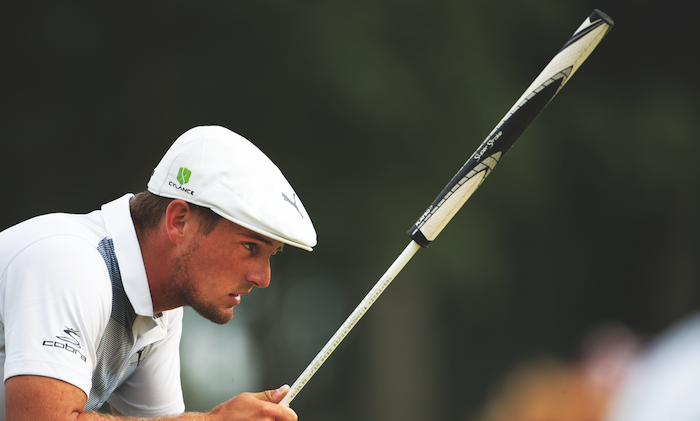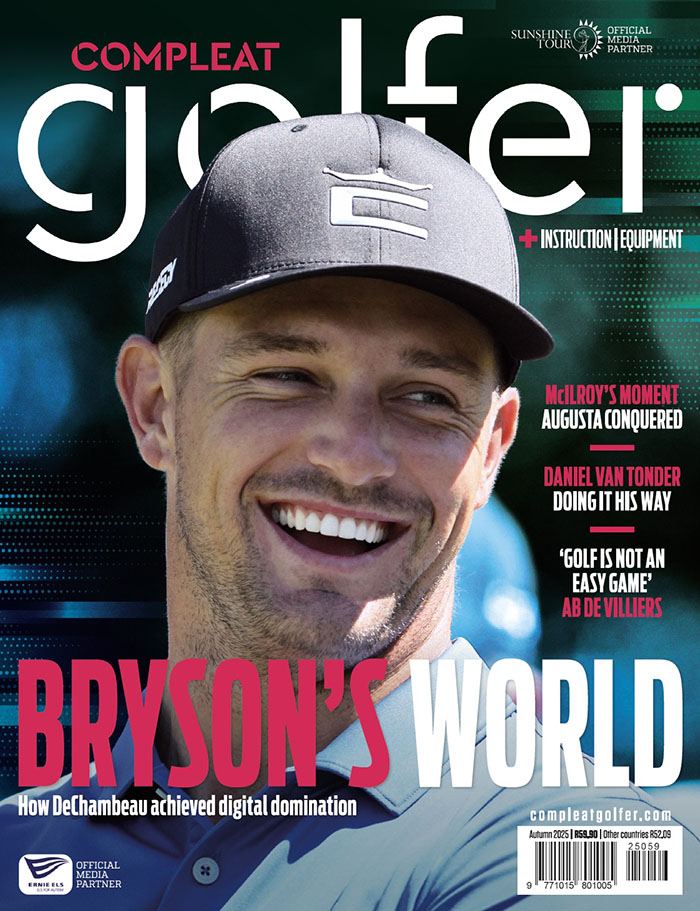I was watching the Northern Trust Open and thinking about nothing in particular (I’m good at that).
And then it occurred to me that the television coverage had caught up with the eventual winner, Bryson DeChambeau. My favourite sporting scientist, he of the uniform-length irons and single swing-plane, will one day come to define how we consume TV golf.
In the past few years the game has undergone a TV epiphany. First came High Definition, where we could see the dimples on the ball and the blades of grass it rolled across. Then came the realisation that viewers wanted to know the state of play without waiting for the commentators to tell them.
So the top and bottom of the screen became restless imparters of information, telling you how far it was from the player’s ball to the flag, what number shot this was, on which hole, wind speed and direction, and so on.
And now we have the split screen with ball tracking, allied to the amazing technology that allows us to see the shape of the shot played and how high it went.
On the green we have the putt reader that tells us how to get the ball in the hole with either a firm putt or a subtle one. And we can follow the ball in real time so we know, before Tiger does, that he’s missed. The algorithms built into these viewing aids bring on brain freeze for people like me, but I guess for DeChambeau it all makes perfect sense.
Which brings me to another observation I have from the Northern Trust Open.
Sir Nick Faldo doesn’t like Bryson. I may be wrong, of course, but I got the distinct impression that Nick hates the fact that DeChambeau is different. Which is strange, because if anyone should have empathy for a golfer willing to undergo public criticism for doing odd things, it’s Faldo.
In 1983 Faldo won five times in Europe and topped the Order of Merit, but he wasn’t satisfied. Over the next few years he remodelled his swing with the help of David Leadbetter and in 1987 he began to win again. The next decade saw him win the six Majors that define his legacy, but here’s the point: Faldo never forgave the criticism he copped while changing his swing. The press became the enemy and in particular he hated Peter Alliss, the doyen of BBC golf commentary, who said on air that Faldo was ‘A typical only-child’.
Faldo had the last laugh, of course, but it is an irony not lost on the fourth estate that when his game began to decline, Faldo happily took the money on offer to share his thoughts with the TV audience. He even, gasp, shared a commentary box with Alliss. And here’s the rub; he’s great. By far the best analyst on any golf channel, willing to share personal moments to improve our understanding of something on screen, witty and urbane when the situation requires, professional and detached when it doesn’t.
And press people of my generation who endured the Faldo disdain when sticking a microphone under his nose, can be forgiven for wondering which one is the real Sir Nick.
A final observation on DeChambeau: as he has moved up the World Ranking, others have supplanted him as the oddest name in professional golf. In third place we have Whee Kim, in second, Phachara Khongwatmai, and from The Woodlands, Texas: Bronson Burgoon.
– Andy Capostagno is a monthly contributor in his column dedicated to golf’s hackers








